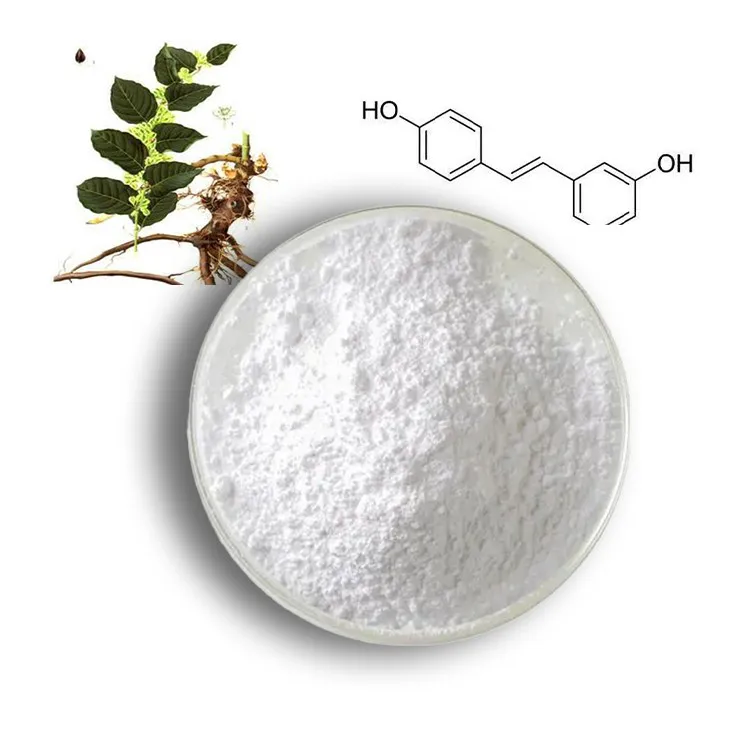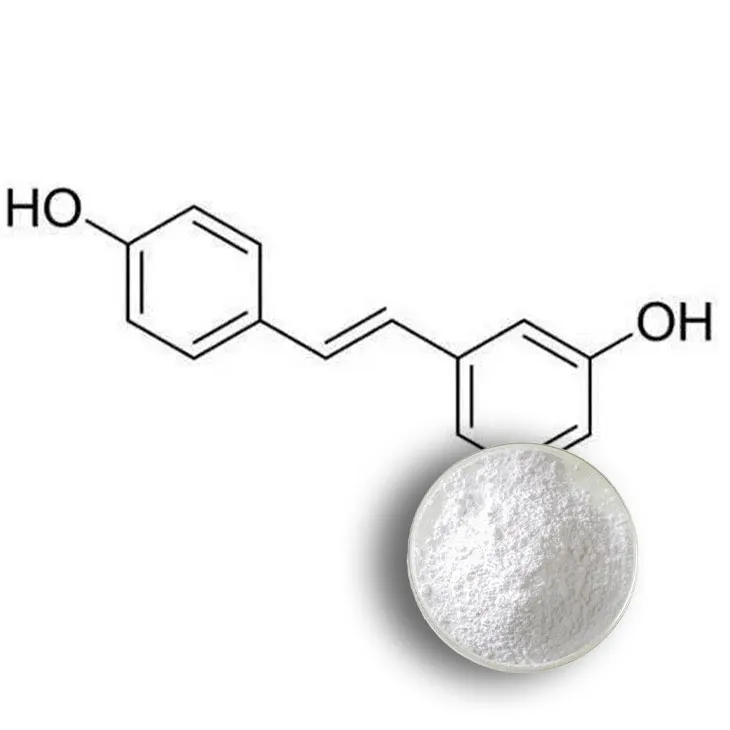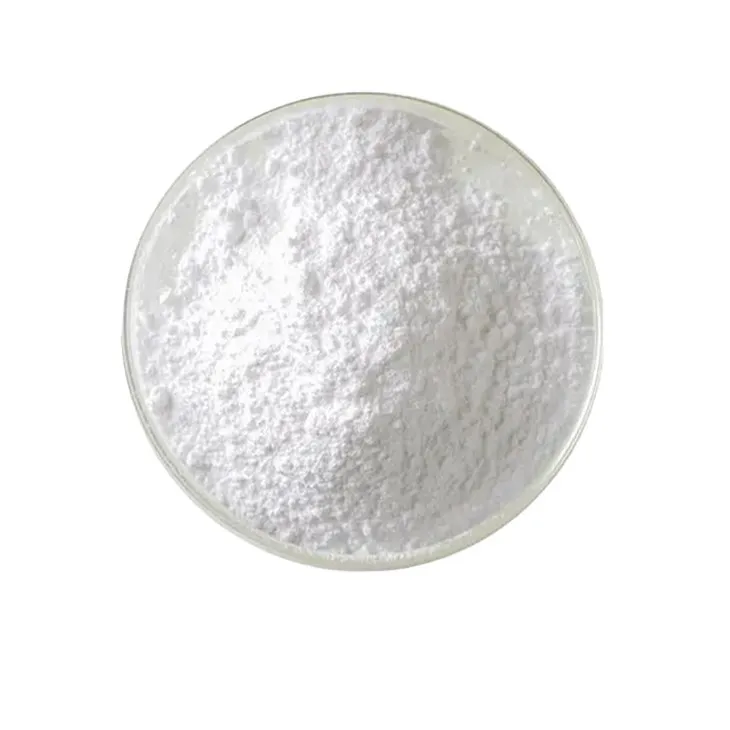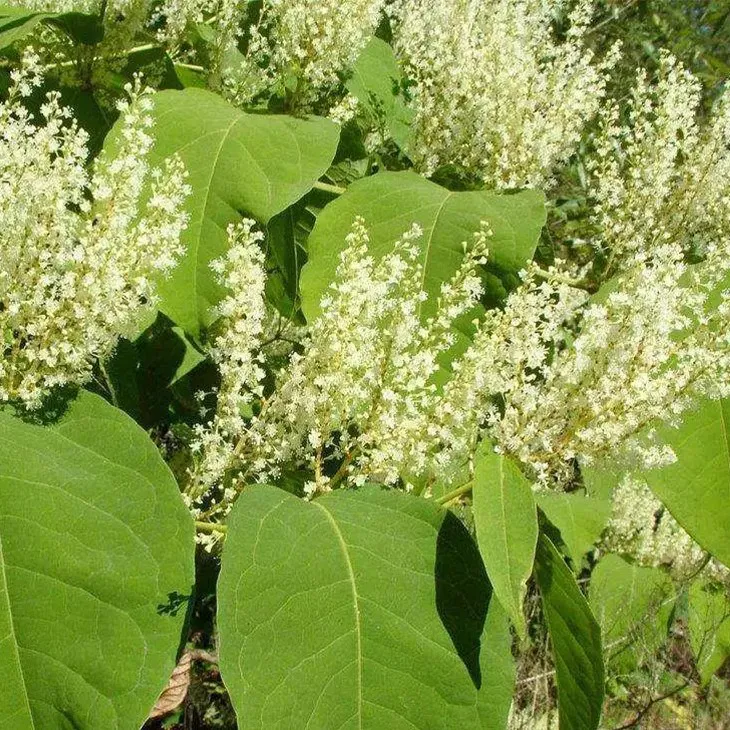- 0086-571-85302990
- sales@greenskybio.com
Read our comprehensive primer on high - quality organic resveratrol extract.
2024-12-18

1. Introduction
Resveratrol has emerged as a highly talked - about natural compound in recent years. It has captured the attention of the scientific community, health enthusiasts, and the general public alike. High - quality organic Resveratrol extract is of particular interest due to its potential to offer a range of health benefits while being sourced from pure and natural materials. This comprehensive primer aims to provide in - depth knowledge about this extract, covering its origin, extraction methods, and the numerous health - promoting properties it possesses.

2. The Origin of Resveratrol
Resveratrol is a phytoalexin, which is a type of natural compound produced by plants as a defense mechanism against various environmental stresses such as fungal infections, ultraviolet radiation, and oxidative damage.
2.1 Plant Sources
It is most commonly found in grapes, especially in the skins of red grapes. Red wine, which is made from red grapes, is also a well - known source of resveratrol. However, it is important to note that the amount of resveratrol in red wine can vary significantly depending on factors such as the grape variety, the region where the grapes are grown, and the winemaking process.
- Other plant sources of resveratrol include peanuts, blueberries, and cranberries. These sources also contain varying amounts of resveratrol, with some having lower concentrations compared to grapes.

3. The Importance of Organic Sourcing
When it comes to Resveratrol extract, the source being organic is of great significance.
3.1 Purity and Absence of Contaminants
Organic Resveratrol extract is sourced from plants that are grown without the use of synthetic pesticides, fertilizers, or genetically modified organisms (GMOs). This ensures that the extract is free from potentially harmful chemical residues. For example, synthetic pesticides used in non - organic farming can leave traces on the plants, and these residues may end up in the extract if not sourced organically.
3.2 Environmental and Sustainability Considerations
Organic farming practices are more environmentally friendly. They promote soil health, biodiversity, and water conservation. By choosing organic resveratrol extract, consumers are also supporting sustainable agricultural practices.

4. Extraction Methods
The extraction of high - quality resveratrol is a complex process that requires precision and the use of appropriate techniques.
4.1 Solvent Extraction
One of the most common methods is solvent extraction. This involves using a solvent such as ethanol or methanol to dissolve the resveratrol from the plant material. The choice of solvent is crucial as it can affect the purity and quality of the extract. For example, ethanol is often preferred as it is relatively safe and can effectively extract resveratrol while leaving behind fewer impurities compared to some other solvents.
4.2 Supercritical Fluid Extraction
Supercritical fluid extraction is a more advanced technique. In this method, a supercritical fluid, typically carbon dioxide (CO₂), is used as the solvent. The supercritical state of CO₂ has properties that make it an excellent solvent for extracting resveratrol. It can be easily removed from the extract, leaving behind a purer product. This method is also more environmentally friendly compared to some traditional solvent extraction methods as CO₂ is a non - toxic and non - flammable gas.

5. Health Benefits of High - Quality Organic Resveratrol Extract
The health - promoting properties of resveratrol are numerous and have been the subject of extensive research.
5.1 Antioxidant Effects
Resveratrol is a powerful antioxidant. It helps to neutralize free radicals in the body. Free radicals are unstable molecules that can cause damage to cells, DNA, and proteins. By scavenging these free radicals, resveratrol can help protect the body against various diseases and slow down the aging process.
5.2 Anti - Aging Benefits
As mentioned above, its antioxidant properties contribute to its anti - aging effects. Additionally, resveratrol has been shown to activate certain genes and cellular pathways that are associated with longevity. For example, it may help to maintain the integrity of telomeres, which are the protective caps at the ends of chromosomes. As we age, telomeres tend to shorten, and this is associated with cellular aging and various age - related diseases.
5.3 Cardiovascular Health
There is evidence to suggest that resveratrol can have a positive impact on cardiovascular health. It may help to reduce inflammation in the blood vessels, lower blood pressure, and improve cholesterol levels. By reducing inflammation, it can help prevent the development of atherosclerosis, which is the hardening and narrowing of the arteries due to the buildup of plaque.
5.4 Anti - Cancer Potential
Resveratrol has shown potential in cancer prevention and treatment. In laboratory studies, it has been found to inhibit the growth of cancer cells in various types of cancer, including breast, prostate, and colon cancer. However, more research is needed to fully understand its role in cancer and to determine if it can be used as a stand - alone treatment or in combination with other therapies.
6. Dosage and Safety Considerations
When considering the use of high - quality organic resveratrol extract, it is important to be aware of dosage and safety aspects.
6.1 Dosage
The appropriate dosage of resveratrol can vary depending on factors such as the individual's age, health status, and the specific health goals. In general, most studies have used dosages ranging from 50 - 500 mg per day. However, it is always best to consult with a healthcare professional before starting any new supplement regimen.
6.2 Safety
Resveratrol is generally considered safe for most people when taken in appropriate doses. However, some people may experience mild side effects such as stomach upset, diarrhea, or nausea. Additionally, resveratrol may interact with certain medications, so it is important to inform your doctor if you are taking any medications before starting resveratrol supplementation.
7. Incorporating Resveratrol into Your Daily Routine
There are several ways to incorporate high - quality organic resveratrol extract into your daily routine.
7.1 Supplements
One of the easiest ways is through the use of resveratrol supplements. These are available in various forms, such as capsules, tablets, and powders. When choosing a supplement, it is important to look for a high - quality product that is sourced from organic materials and has been tested for purity and potency.
7.2 Dietary Sources
As mentioned earlier, consuming foods rich in resveratrol, such as red grapes, red wine (in moderation), peanuts, blueberries, and cranberries, can also provide a natural source of resveratrol. However, it can be difficult to obtain sufficient amounts of resveratrol through diet alone, especially if you are aiming for higher dosages for specific health benefits.
8. Conclusion
High - quality organic resveratrol extract is a fascinating natural compound with a wide range of potential health benefits. From its origin in plants as a defense mechanism to its extraction methods and various health - promoting properties, there is much to learn about this extract. Understanding the importance of organic sourcing, the different extraction techniques, and the proper dosage and safety considerations is crucial for those interested in incorporating resveratrol into their health regimen. Whether through dietary sources or supplements, resveratrol offers an exciting opportunity to explore the power of natural extracts in promoting health and well - being.
FAQ:
What is resveratrol?
Resveratrol is a natural compound. It is found in various plants such as grapes, berries, and peanuts. It has gained significant attention in recent years due to its potential health - promoting properties.
What makes high - quality organic resveratrol extract special?
High - quality organic resveratrol extract is special because it is sourced from the purest organic materials. Sophisticated extraction techniques are used to ensure its high quality, which may lead to better preservation of its beneficial properties compared to non - organic or lower - quality extracts.
What are the extraction methods for high - quality organic resveratrol extract?
There are several extraction methods for high - quality organic resveratrol extract. These may include solvent extraction, where appropriate solvents are used to extract resveratrol from the plant sources. Other methods might involve more advanced techniques to ensure purity and high quality while maintaining the integrity of the resveratrol compound.
What are the antioxidant effects of high - quality organic resveratrol extract?
The antioxidant effects of high - quality organic resveratrol extract are significant. Antioxidants help to neutralize free radicals in the body. Free radicals can cause damage to cells and are associated with various diseases and the aging process. Resveratrol can scavenge these free radicals, reducing oxidative stress and potentially protecting the body from damage.
Can high - quality organic resveratrol extract really have anti - aging benefits?
There is evidence to suggest that high - quality organic resveratrol extract may have anti - aging benefits. Its antioxidant properties play a role in this. By reducing oxidative stress, it may help to protect cells from damage, which can slow down the aging process at the cellular level. Additionally, it may also have an impact on certain biological processes related to aging, such as inflammation and mitochondrial function.
Related literature
- The Role of Resveratrol in Health and Disease"
- "Organic Extracts: Unlocking the Potential of Resveratrol"
- "Resveratrol: From Plant Source to Health Benefits"
- ▶ Hesperidin
- ▶ Citrus Bioflavonoids
- ▶ Plant Extract
- ▶ lycopene
- ▶ Diosmin
- ▶ Grape seed extract
- ▶ Sea buckthorn Juice Powder
- ▶ Fruit Juice Powder
- ▶ Hops Extract
- ▶ Artichoke Extract
- ▶ Mushroom extract
- ▶ Astaxanthin
- ▶ Green Tea Extract
- ▶ Curcumin
- ▶ Horse Chestnut Extract
- ▶ Other Product
- ▶ Boswellia Serrata Extract
- ▶ Resveratrol
- ▶ Marigold Extract
- ▶ Grape Leaf Extract
- ▶ New Product
- ▶ Aminolevulinic acid
- ▶ Cranberry Extract
- ▶ Red Yeast Rice
- ▶ Red Wine Extract
-
Dan Shen Root Extract/Salvia Root Extract
2024-12-18
-
Eucommia Ulmoides Extract
2024-12-18
-
Marigold Extract
2024-12-18
-
Purple Sweet Potato Extract
2024-12-18
-
Pomegranate Extract
2024-12-18
-
Feverfew Extract
2024-12-18
-
Propolis Extract Powder
2024-12-18
-
Jujube Extract
2024-12-18
-
Lavender Extract
2024-12-18
-
Sea buckthorn Juice Powder
2024-12-18





















